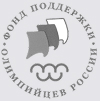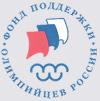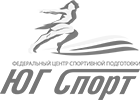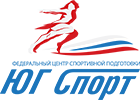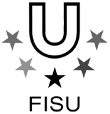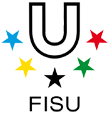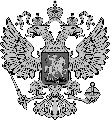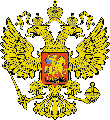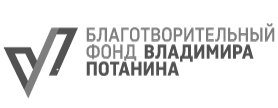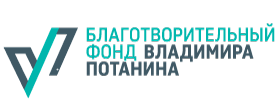In this interview, Lev Belousov, Rector of the Russian International Olympic University, talks about the most painful issue in Russian sport and about education of future sports leaders.
At the end of last year, the Russian International Olympic University (RIOU) celebrated its 10th anniversary. Established as part of preparations for the Sochi 2014 Games, RIOU has over time built a solid reputation not only on the domestic educational market but also internationally. One of the reasons for its success is the drive to meet coming challenges.
— Mister Rector, Russian sport is still going through the doping crisis. Do you think this scandal has to do with what’s happening in international politics?
— The International Olympic Committee has always, and in all circumstances, insisted that global sport and the Olympic Movement must stay separate from any external interference, political interference in particular. But this has been rarely achieved, and it is even more difficult today ̶ primarily because sport and the Olympic Movement are the essential and integral elements of the system of international relations. You can’t isolate sport from global events. When political trends change and the world is going through a period of turbulence, this immediately impacts on economy, culture, social life and sport, of course. Contradictions that arise between states act like a tumour spreading rapidly to other areas. So, it’s really difficult to separate sport from the political agenda, no matter how hard we try. Still, we should be moving in that direction.
— How can doping be countered? Would you agree that the use of doping undermines the very essence of sport?
— Absolutely. It has a negative effect on any kind of competition. Obviously, that’s unfair play, and it must be stopped. But doping practices are difficult to eliminate, as competition involves the temptation to win through cheating. That’s human nature. Some people give in to the temptation; others choose to compete fairly. So, what we should do is focus on educating athletes and all those who surround them. That’s what we mean when we talk about creating an anti-doping culture – a universal one. We must instill in young people attitudes that will lead them to reject any doping related practices. And this must start from children’s and youth sport.
We see it as one of RIOU’s most important objectives. Two years ago, we were the first institution to conclude an agreement with the completely renewed RUSADA. The agreement seeks to create programmes promoting the anti-doping cause, and this includes all of our training courses of different duration. Only large-scale awareness raising work, beginning from young age, can produce the desired results in anti-doping education. Today, despite the new round of the doping scandal, our country has everything to create a model anti-doping system with the transparent operation of the renewed laboratory, effective work of RUSADA and the powerful awareness-raising campaign. This system is already in place, up and running – and RIOU is one of its elements.
Concurrent education for active athletes
— What are RIOU’s goals in this area?
— Our 10th anniversary ceremony on 3 December was attended by head of RIOU’s Board of Trustees Vladimir Putin. RIOU is the first educational institution to have a Board of Trustees chaired by the President of the Russian Federation. For us it’s a great honour and a great responsibility. We must not only do our work and achieve our objectives, but always be ahead of the curve.
When the idea was born, we started from scratch. And that was our competitive advantage. We were able to choose the best of everything – teachers, programmes, and we had government support. The project would not have been feasible without the assistance of Vladimir Potanin, who provided the required funding. We realised that we must develop the best course in the area of sports management. So, two teams of experts were set up to devise the curriculum. They were the leading specialists in the field. It was in this competitive climate that our flagship course was born – Master of Sport Administration, both the English and Russian language versions. Within just a couple of years, it secured a leading position in the educational market.
From the outset, we envisioned for ourselves a marathon distance – with a well-defined strategy, aims and prospects. And we’ve completed the first leg quite successfully. I don’t think there is another educational institution that was able, within just 5-6 years of operation, to move into the second ranking slot in Europe and join the ten best universities in the world. Besides, we have endorsement from the IOC, and our graduates have diplomas bearing the Olympic rings. This is fundamentally important.
RIOU is now part of the elite group of educational institutions. This is all the more remarkable as there are about 500 similar courses in the world. To a great extent, our success is reliant on our excellent staff. RIOU boasts highly qualified faculty, and this has been recognised by the international educational community. The SportBusiness International rankings look at such criteria as graduates’ employability and quality of teaching. RIOU has excellent scores on both. We try to train versatile professionals who can work in any sphere of sports management, rather than managers with a narrow focus on a specific sector of the sports industry.
— What are RIOU’s priorities for the near future?
— In the near future, we will need to address a number of questions. First, what direction should our development take? Instead of simply increasing the number of students, we would like to adjust our offering to meet the needs of athletes who have retired from sport. We want to equip them with professional knowledge allowing them to work and build their careers in the sports industry. And we should reach out to athletes before they stop competing. This is what’s called concurrent education, which is practiced in some countries. It works like this: there are breaks between training periods, and these periods should be extended. Athletes must use that time to obtain additional professional qualifications. The process can take a year or two, but that’s not a problem. The important thing is to offer such opportunities to athletes.
— What options do athletes have today, and what should be done to expand the range of opportunities?
— Sports federations are allocating funds to enable athletes to study not only during the breaks in the training process but also during competitions. We are designing programmes to suit this format. This strategically important area of work is yet to be developed in Russia. And that’s not to mention other formats in which athletes are provided with grants to study during or after their competing career – such forms of support are in their infancy in this country.
Ideally, athletes should have opportunities to receive additional professional qualifications during their sports career, to avoid the painful transition to life after retirement. When athletes stop competing, they must be prepared to start a new life. What’s important, ex-athletes have great potential to become effective managers. They have the right background and an insider’s knowledge of the world of sport. Our task is to add the right set of managerial competencies to this experience base.
Dual diploma programme
— Can people without sports experience join RIOU’s courses?
— We welcome candidates who have never been personally involved in the elite sport but are committed to it. People who want to work in this sphere, who are keen on sport, and those who’ve had volunteering experience. For example, we have students who used to work in banking but decided to quit and go into the sports business. Many of our graduates who have made this career shift are building very successful careers in the new field. That means we are on the right track.
RIOU also runs a dual diploma programme. We believe it’s very successful because upon completion of a two-year course graduates receive a diploma in sports law from the Moscow State University and our diploma of Master of Sports Administration. The course is very popular, and that’s the main indicator of success. In my opinion, sports lawyers are highly sought after today – the scope of work for them is enormous, and it will keep expanding.
— Trends and needs are changing very fast in today’s world. How does RIOU succeed in staying up-to-date?
— On the one hand, we adjust our programmes to meet the athletes’ needs. On the other hand, we are in constant contact with them. Education is about exchanging information, not just transferring knowledge. We expand the original curriculum by adding new subjects. Our programmes never get stale – we change them based on the current trends and events agenda. For example, this year we introduced a new subject – sports psychology. It’s taught both in Russian and English. It’s a response to the new challenges in the sports industry. If the coach is not a good psychologist, how can he/she train the athlete properly? That’s a complex science offering highly specialised knowledge about relationships between different actors – not just between the coach and the athlete. It’s about the whole system of relationships.
We also try to respond to the needs of those who would like to do a course at RIOU but cannot come and stay in Sochi for a whole year. We offer tailored training courses at request. For instance, we delivered a three-month course designed specifically for referees, and another bespoke programme – for top-tier coaches – has been successfully running for two years now. We designed it at the request of the Russian Olympic Committee. The feedback has been positive, so we’ll continue with it. We often have delegations from China, and such visits sometimes result in short bespoke courses. Importantly, RIOU is the only university in Russia to have been approved by the Chinese authorities to provide training, retraining and professional development to Chinese sports officials.
Given the increased role of sports diplomacy in the recent years, I think there is a lot we can do in this area. Representatives of Russia must secure strong positions in international sport, and they must act professionally demonstrating an understanding of all the nuances and intricacies of the field. This requires experience, knowledge and self-restraint. We are not training such specialists now, and that’s a pressing problem. Another problem is the lack of proficiency in foreign languages, which limits the opportunities even for the most renowned ex-athletes.
This reminds me of what René Fasel said in an interview in 2010, when we were making our first presentation of RIOU in Vancouver. “If you want to be successful, learn a foreign language. If you are planning to train managers and become a significant element of the global Olympic Movement, make sure each of your students speaks at least two languages”. We haven’t reached this goal so far, because teaching foreign languages is not quite our area of specialisation. But we are looking for ways to integrate foreign language learning into our curricular. English and French, in the first place.
Strategic Partnership
— How difficult is it to get enrolled in RIOU? What are the requirements?
— There are no entrance exams, but we do have a selection system. Candidates fill in an electronic application which includes a number of essays. They write about themselves and answer questions. We only admit candidates with university degree qualifications because our courses fall under the category of additional professional training. Applicants seeking to join the English language course should go through an interview in which we check their English skills. As for sports achievements, they provide an additional advantage. We are happy to see Paralympians on any of our programmes. The university’s building is fully accessible for them, and they study along other students. Tuition fees can be a problem, of course, but 85-90% of our students are supported by grants in their studies. Only one tenth of RIOU’s students pay tuition themselves, and most of them are business people, not athletes.
— How many applicants do you get per place?
— 10-15 applicants on average. That’s tough competition, of course. But the English language MSA aims to train future sports leaders, and the scholarships cover tuition, accommodation on the Sochi campus and even a small monthly allowance. That means nearly all expenses, except for the cost of travel to Sochi. RIOU’s international MSA has already attracted students from 63 countries, over the six years since the inauguration of the campus. Students on the Russian language programme are supported by the Russian Olympians Foundation. It provides scholarships to study on any version of the MSA course, as well as on the Master of Sport Management programme. RIOU can also provide grants to cover tuition, but not accommodation.
The Olympic Education Programme is delivered in two languages as well. The programme is now in its fourth year. It targets predominantly the management staff of Russian national sports federations, and other organisations in Russia related to sport and the Olympic Movement. In this area, we are working in close cooperation with the Russian Olympic Committee, which is our strategic partner, in fact. We offer over 30 short courses in various fields. These one- or two- week courses are very popular, and we have specialists coming from all over Russia.
In my report to Vladimir Putin during his visit to RIOU on December 3, I said that we annually graduate about 1200 specialists, who come from all regions of Russia, except Chukotka. But we are going to fill this gap. One more thing, during the 10th anniversary celebrations we launched the OVAL interactive centre on our Sochi campus. We are inviting all our students and young people of the Krasnodar Region to visit it. OVAL is also open to all visitors to Sochi. It provides a great opportunity to learn about the history of the Olympic Games through visual media. It’s an exciting and state-of-the-art interactive facility.

























